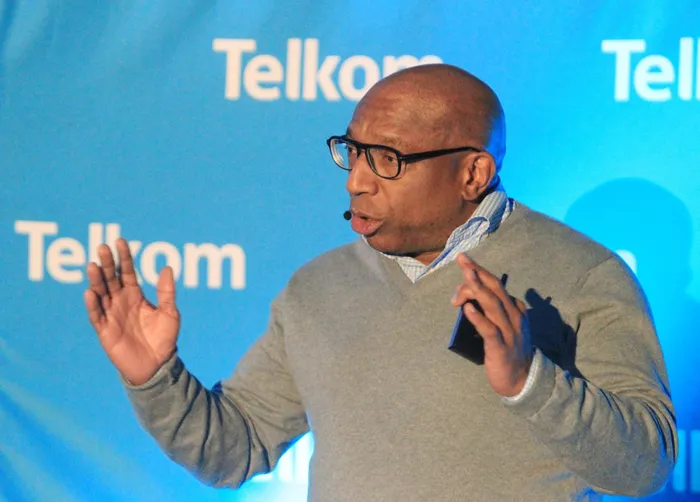Telkom plans court battle with Icasa over high-demand spectrum

Telkom chief executive Sipho Maseko says the group instructed its lawyers to consider and advise on its options given that the ITA disregarded or had given insufficient weight to the promotion of competition as a material consideration in the licensing of high-demand spectrum. Photo: Jacques Naude/African News Agency (ANA)
JOHANNESBURG – Telkom is considering taking legal action against the Independent Communications Authority of South Africa (Icasa) after allegedly failing to promote competition in the awarding of high-demand spectrum.
Telkom chief executive Sipho Maseko told a briefing on the company’s interim financial results on Monday that the group had instructed its lawyers to consider and advise on its options given that the Invitation to Apply (ITA) disregarded or had given insufficient weight to the promotion of competition as a material consideration in the licensing of high-demand spectrum.
“Whatever action we take will be designed to ensure that there is regulatory certainty, there is fairness, there is lawfulness and also there is the speedy licensing of the high demand spectrum. It cannot be done on an unfair basis, because that increases the level of uncertainty for everybody,” Maseko said.
Last month, Icasa published the ITA for the International Mobile Telecommunications, also known as high-demand spectrum, and the Wireless Open Access Networks, saying the release of spectrum was critical to ensure good-quality broadband services and lower the cost of communication particularly data.
Maseko said although Telkom was planning to participate in the ITA, it should not be construed as tacit agreement to it. He said competition in the mobile sector was ineffective.
“The licensing spectrum is one of the most potent tools in the hands of the regulator to reset the imbalance in market structure and promote competition,” Maseko said.
“We believe that Icasa as the regulator missed the opportunity to use the licensing of spectrum to address the monopolistic nature of the market. In fact, we think they have mistakenly defined spectrum as a market instead of defining it as an input.”
Maseko said Telkom believed Icasa disregarded the recommendations by the Competition Commission that it must not license spectrum in the manner that entrenched the monopoly.
“They designed the ITA in a manner that disadvantages Telkom as the only credible infrastructure competitor to the monopoly of the two larger players.
“The caps proposed in the ITA disregard the fact that spectrum is available to the duopoly already through spectrum arrangements between themselves and smaller licensees,” said Maseko.
Last month, Telkom approached the Competition Tribunal to declare the suite of spectrum arrangements between Vodacom and Rain as a merger that should have been notifiable in terms of the Competition Act.
Telkom contended that the merger was notifiable because the multiple agreements between Vodacom and Rain grant Vodacom use of and control over the deployment of Rain’s spectrum, including the planning, rollout, maintenance and service of its radio access network. “Our view is that the current duopoly will be entrenched at least over the next 20 years, which is the period of the spectrum licence including 5G services,” he said.
“There is an urgent need to level the playing field before this long-term commitment is made.”
Maseko said the Telkom had made written and verbal submissions to Icasa that the Broadband Mobile Service Inquiry must consider that the licensing of spectrum must be informed by the public assessment of the spectrum arrangements between the smaller and larger players.
“There needs to be public enquiries that are held so that the arrangements between the smaller players and the larger players are understood,” said Maseko.
BUSINESS REPORT
Related Topics: